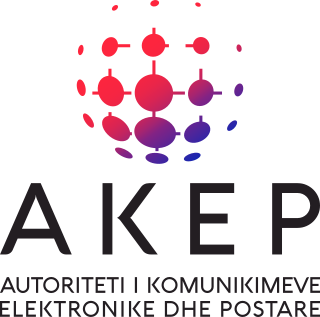 W
WThe Electronic and Postal Communications Authority is the telecommunications regulator for Albania. It administers the Law on Electronic Communications. It also manages the .al geographic top-level domain.
 W
WThe Canadian Broadcast Standards Council (CBSC) is an industry funded self-regulating organization created by the Canadian Association of Broadcasters to administer standards established by its own members, Canada's private broadcasters.
 W
WThe Commission for Communications Regulation (ComReg) is the general communications regulator for Ireland, covering almost all possible types of communications.
 W
WThe Cyber Security Agency of Singapore (CSA) is a government agency of Singapore nominally under the Prime Minister's Office, but is day-to-day administratively managed by the Ministry of Communications and Information (MCI). It provides centralised oversight of national cyber security functions, and works with sector leads to protect Singapore's Critical Information Infrastructure (CII), such as the energy and banking sectors. Formed on 1 April 2015, the agency also engages with various industries and stakeholders to heighten cyber security awareness as well as to ensure the development of Singapore's cyber security. It is headed by the Commissioner of Cybersecurity, David Koh. The Minister-in-charge is Josephine Teo of MCI.
 W
WThe National Communications Entity is the national communications and media regulator of Argentina. It was created by a presidential decree in 2016 and combines the former Federal Authority for Audiovisual Communication Services (AFSCA) and the Federal Authority for Information and Communication Technologies.
 W
WThe Federal Communications Commission (FCC) is an independent agency of the United States federal government that regulates communications by radio, television, wire, satellite, and cable across the United States. The FCC maintains jurisdiction over the areas of broadband access, fair competition, radio frequency use, media responsibility, public safety, and homeland security.
 W
WThe Federal Network Agency is the German regulatory office for electricity, gas, telecommunications, post and railway markets. It is a federal agency of the Federal Ministry for Economic Affairs and Energy and headquartered in Bonn, Germany.
 W
WThe Federal Service for Supervision of Communications, Information Technology and Mass Media or Roskomnadzor is the Russian federal executive agency responsible for monitoring, controlling and censoring Russian mass media. Its areas of responsibility include electronic media, mass communications, information technology and telecommunications, supervising compliance with the law, protecting the confidentiality of personal data being processed, and organizing the work of the radio-frequency service.
 W
WThe Gibraltar Regulatory Authority (GRA) was established by the Gibraltar Regulatory Act in October 2000. The GRA is the statutory body in Gibraltar responsible for regulating electronic communications. This includes telecommunications, radio communications and broadcasting transmissions. The GRA serves as both the national supervisory and regulatory authority for these sectors. The supervision and regulation of these sectors is done in accordance with European Union law that has been rendered into national law.
 W
WThe Hellenic Telecommunications and Post Commission or EETT is the Greek national regulatory authority for of the telecommunication and postal markets.
 W
WThe Independent Communications Authority of South Africa (ICASA) is an independent regulatory body of the South African government, established in 2000 by the ICASA Act to regulate both the telecommunications and broadcasting sectors in the public interest. Traditionally, telecommunications and broadcasting services operated separately and so has the regulation of the sectors. Broadcasting in South Africa was regulated by the Independent Broadcasting Authority (IBA), whereas telecommunications was regulated by the South African Telecommunications Regulatory Authority (SATRA). Rapid technological developments have led to the convergence of broadcasting and telecommunications services. This also had an influence on the convergence of regulation resulting in the merging of the IBA and SATRA. ICASA functions under the Department of Communications (DoC). It was initially composed of seven Council members. The ICASA amendment Act of 2006 included the Postal services, previously regulated by the Postal Authority into ICASA's mandate. It increased the Council members from seven to nine to accommodate the new members from the Postal Authority.
 W
WThe Information and Communication Technologies Authority (ICTA), is a national telecommunications regulatory and inspection authority of Turkey. It was formerly known as the Telecommunications Authority.
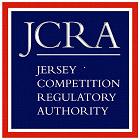 W
WThe Jersey Competition Regulatory Authority (JCRA) is the competition regulator in Jersey, postal and telecommunications regulatory authority for Jersey, a British Crown Dependency off the coast of NormandyFrance.
 W
WThe Malaysian Communications and Multimedia Commission is a regulatory body whose key role is the regulation of the communications and multimedia industry based on the powers provided for in the Malaysian Communications and Multimedia Commission Act 1998, the Communications and Multimedia Act 1998, and the Strategic Trade Act 2010. MCMC is similar to the National Telecommunications Commission (NTC) in the Philippines. Its role to implement and promote the Government's national policy objectives for the communications and multimedia sector. MCMC is also charged with overseeing the new regulatory framework for the converging telecommunications and broadcasting industries and online activities. In 2001, MCMC's role was expanded to include overseeing the postal service sector pursuant to the Postal Services Act 1991 and licensing of the Certification Authorities under the Digital Signature Act 1997.
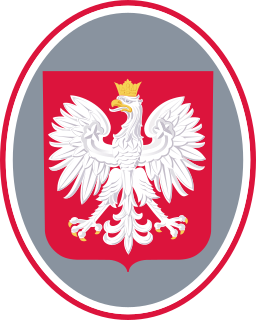 W
WThe Ministry of Administration and Digitization was formed on 21 November 2011, from a reorganisation of the Ministry of Infrastructure and the Ministry of Interior and Administration.
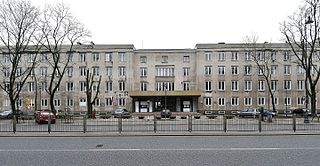 W
WThe Ministry of Digital Affairs is a ministry of the Polish government founded in December 2015. Split from the Ministry of Administration and Digitization, the Ministry is responsible for matters regarding development in the cyber sphere for Poland. The first Minister of Digital Affairs was Anna Streżyńska. After she was recalled on 9 January 2018, the Ministry was under personal supervision of the Polish Prime Minister Mateusz Morawiecki till 17 April 2018 when Marek Zagórski was appointed the Minister of Digital Affairs
 W
WThe National Communications Commission is an independent statutory agency of Executive Yuan of the Republic of China (Taiwan) responsible for regulating the development of the telecommunication and broadcasting industries, promoting competition and consumer protection, and regulating licensing, radio frequency and spectrum, programming content, communications standards and specifications in Taiwan. The current Chairperson is Chan Ting-I.
 W
WThe Norwegian Communications Authority, prior to 2015 the Norwegian Post and Telecommunications Authority is a Norwegian government agency responsible for controlling and regulating the telecommunication and postal sector of Norway. The agencies main responsibilities are controlling the telecom market, issuing frequency concessions and telephone numbers.
 W
WThe Office of Communications, commonly known as Ofcom, is the government-approved regulatory and competition authority for the broadcasting, telecommunications and postal industries of the United Kingdom.
 W
WOffice of the Communications Authority (OFCA) is an executive arm of Communications Authority in Hong Kong. It is the body responsible for telecommunications regulation, antitrust enforcement and allocation of the radio frequency portion of the electromagnetic spectrum.
 W
WThe Office of Telecommunications (Oftel) was a department in the United Kingdom government, under civil service control, charged with promoting competition and maintaining the interests of consumers in the UK telecommunications market. It was set up under the Telecommunications Act 1984 after privatisation of the nationalised operator BT.
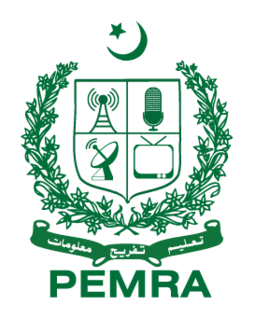 W
WPakistan Electronic Media Regulatory Authority (PEMRA) is an independent and constitutionally established federal institution responsible for regulating and issuing channel licenses for establishment of the mass media culture, print and electronic media.
 W
WThe Phone-paid Services Authority (PSA), known as PhonepayPlus until 1 November 2016, is the regulatory body for all premium rate phone-paid services in the United Kingdom. These are the content, goods and services that consumers can buy by charging the cost to their phone bills and pre-pay phone accounts.
 W
WThe Tanzania Communications Regulatory Authority (TCRA), established by the TCRA Act No. 12 of 2003, is an independent Authority for the postal, broadcasting and electronic communications industries in the United Republic of Tanzania. It merged the former Tanzania Communications Commission and the Tanzania Broadcasting Commission. The TCRA is accountable to the Communications and Technology Ministry. The Information Communication and Technology (ICT) sector reform in Tanzania is notable in that development was influenced by regional, political (national) and technological factors. Tanzania is one of the few African countries to liberalise the communications sector whereby the Converged Licensing Framework (CLF) is used as a key strategy, in terms of the Tanzania Communications Regulations. Since inception in 2003, the TCRA has issued a number of regulations to administer the sector, but still faces a number of challenges such as the roll-out of services to under-serviced rural areas.
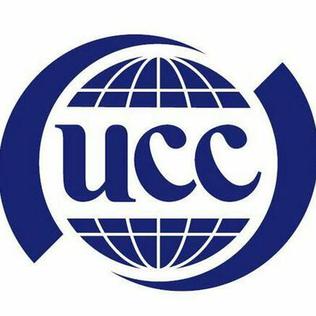 W
WThe Uganda Communications Commission (UCC) is the government regulatory body of the communications sector in Uganda. Although owned by the Ugandan government, it acts independently. Its mandated responsibilities include licensing, regulation, communications infrastructure development and the expansion of rural communications service.